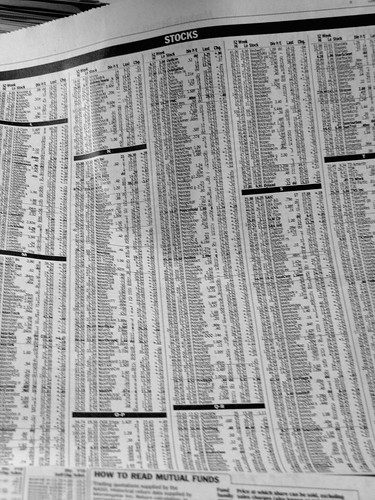The problem with Journalism and print media is that they do not know what they are any more. Somewhere, probably after Nixon they lost their credibility, more recently after the Iranian crisis they lost their relevance. 
The truth of the matter is that newspapers are not about news and they were never really mass media, they were mostly portable bill-boards that realized that they could also distribute relevant information next to their advertising. Distributing relevant information currently has no barriers to entry and the most effective informers are real biased people with no organizational affiliations. That’s what recent events have shown. We can get relevant information from the actual participants and impartiality and accuracy are a myth that Journalists would love us to believe in but we won’t.
 CNN is not News just like News is not CNN, though Google says it is. News is the communication of information on current events which is presented by real people to a third party or mass audience. News is the story of each person as they see it and as they want to share it. That is not what Journalism and print media are. They are stale and biased information mongers masquerading as News. Their usefulness in a world where everyone has the same knowledge is none. They might survive as entertainers for a while but even that has no future. In a world and a time when the most abundant thing is knowledge and information, they are not only ineffective as purveyors of information but they are dangerous to freedom too. They have no role other than to confuse and incite. That’s why nobody cares about them any more. Journalism and Print media is not dying, they are already dead
CNN is not News just like News is not CNN, though Google says it is. News is the communication of information on current events which is presented by real people to a third party or mass audience. News is the story of each person as they see it and as they want to share it. That is not what Journalism and print media are. They are stale and biased information mongers masquerading as News. Their usefulness in a world where everyone has the same knowledge is none. They might survive as entertainers for a while but even that has no future. In a world and a time when the most abundant thing is knowledge and information, they are not only ineffective as purveyors of information but they are dangerous to freedom too. They have no role other than to confuse and incite. That’s why nobody cares about them any more. Journalism and Print media is not dying, they are already dead
The Iranian crisis has highlighted a new source of information: the non-professional journalist. This new species, equipped with a cell phone, a digital camera and access to the Internet and using blogs, Facebook, Twitter and other platforms have provided raw data about events in ways which professional journalists, by virtue of their fewer numbers, never could. It’s not the first time non-professional journalists have been the first and perhaps only source of events in distant places. Images of the December 26, 2004 tsunami which swept through beach resorts in Thailand showed what was possible, when for the first time in history, ordinary people captured striking images and video of events which would otherwise have gone unrecorded.
from Blogging tools
Mass media is a term used to denote a section of the media specifically designed to reach a very large audience such as the population of a nation state. It was coined in the 1920s with the advent of nationwide radio networks, mass-circulation newspapers and magazines, although mass media (like books andmanuscripts) were present centuries before the term became common. The termpublic media has a similar meaning: it is the sum of the public mass distributors of news and entertainment across media such as newspapers, television, radio,broadcasting, which may require union membership in some large markets such as Newspaper Guild, AFTRA, & text publishers.
from Mass Media on Wikipedia

















